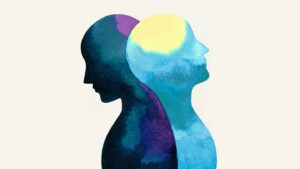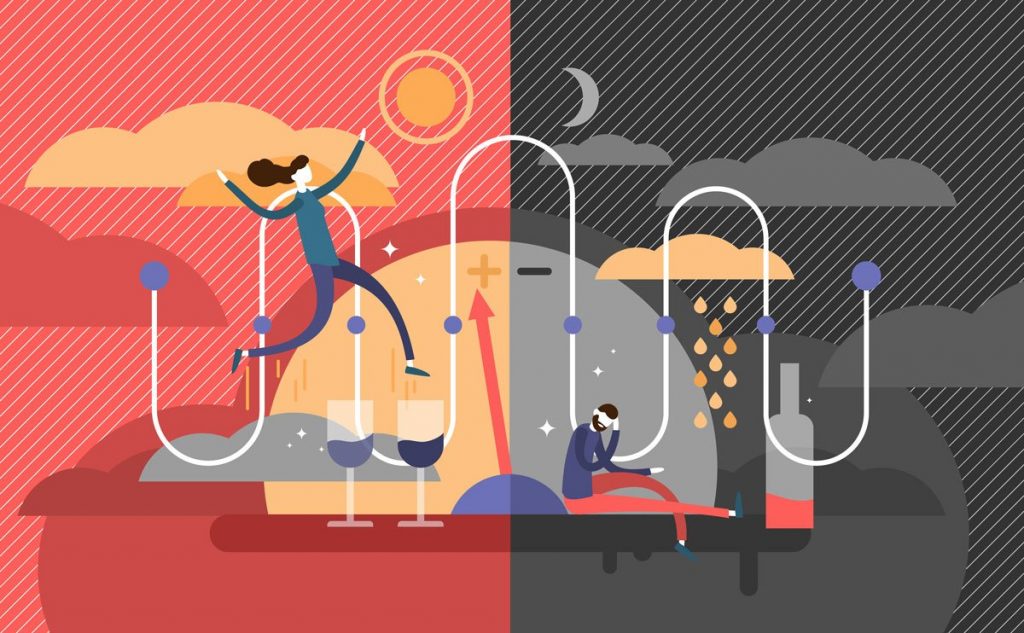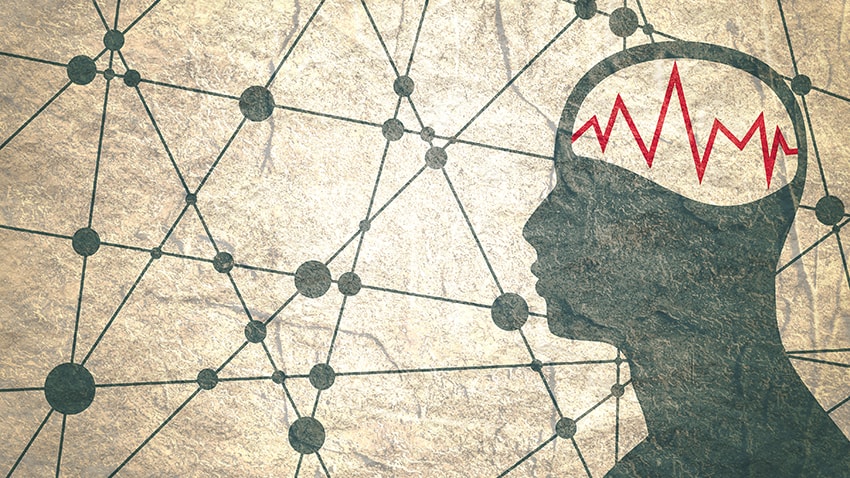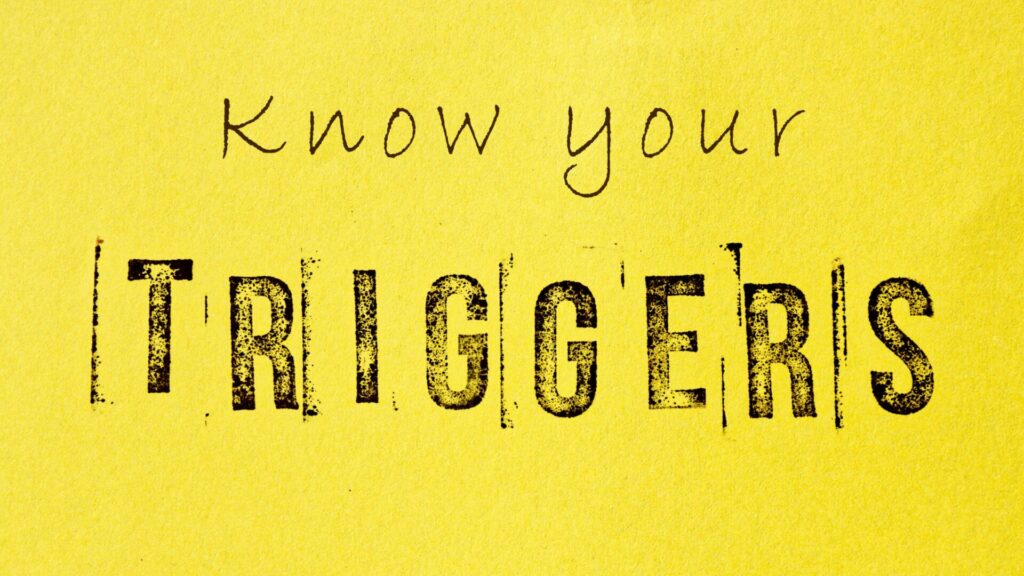Type 3 bipolar disorder, also known as cyclothymia, is a less severe form of bipolar disorder. It is characterized by mood swings that are not as extreme as those seen in type 1 bipolar disorder. People with type 3 bipolar disorder may experience periods of hypomania and depression, but these episodes are not as severe as those seen in people with type 1 bipolar disorder. In this blog post, we will discuss the causes, symptoms, and treatment of type 3 bipolar disorder.
Contents
- 1 What Is Type 3 Bipolar Disorder?
- 2 What Causes Type 3 Bipolar Disorder?
- 3 What Are The Symptoms Of Type 3 Bipolar Disorder?
- 4 How Is Type 3 Bipolar Disorder Different From Another Bipolar Disorder?
- 5 Diagnosing of Type 3 Bipolar Disorder
- 6 Treatment of Type 3 Bipolar Disorder
- 7 Prevention of Type 3 Bipolar Disorder
- 8 Conclusion
What Is Type 3 Bipolar Disorder?

Type 3 bipolar disorder is a condition that causes extreme highs and lows in mood. It is also known as manic depression or bipolar II disorder.
The main difference between type 3 bipolar disorder and other types of bipolar disorder is the severity of symptoms. People with type 3 bipolar disorder have more severe manic episodes than those with type 1 or 2 bipolar disorder. They may also have long periods of depression.
Type 3 bipolar disorder is a chronic condition that can be difficult to treat. There is no cure for the condition, but there are ways to manage the symptoms. With treatment, people with type 3 bipolar disorder can live relatively normal lives.
Approximately there are 1% of the population suffers from type 3 bipolar disorder. Sometimes, the disorder can be misdiagnosed as major depressive disorder or schizophrenia.
What Causes Type 3 Bipolar Disorder?

The cause of type 3 bipolar disorder is not fully understood. However, it is believed to be a combination of genetic and environmental factors.
Some of these common causes of Type 3 bipolar disorder:
Genetics
One such cause may be genetics. If a person has a family member with bipolar disorder, they are more likely to develop the condition themselves. Sometimes genetics is the only cause of the bipolar disorder. These genetics are passed down from parent to child. Also, the cause can be a result of changes in certain genes.
Brain Structure
Another possible cause is the structure of the brain. People with bipolar disorder may have differences in the way their brains are wired. These changes may be due to genetics or other factors, such as exposure to drugs or alcohol in utero.
Also, people with bipolar disorder may have changes in the levels of certain neurotransmitters, such as serotonin and dopamine. These changes can affect mood and behavior.
Environmental Factors
Sometimes, environmental factors can play a role in the development of bipolar disorder. These factors may include :
Exposure To Stress: One such common environmental factor is stress. Stressful life events, such as the death of a loved one, can trigger an episode of bipolar disorder. Sometimes, people with bipolar disorder may be more sensitive to stress than others.
Exposure To Drugs Or Alcohol: Another environmental factor that can trigger bipolar disorder is exposure to drugs or alcohol. People who abuse drugs or alcohol are more likely to develop the condition.
Childhood Trauma: Childhood trauma, such as sexual abuse or neglect, can also lead to bipolar disorder. Trauma can be a trigger for manic episodes.
Abuse: An abusive relationship can also trigger bipolar disorder. There may be many types of abuse that can trigger bipolar disorder like verbal, physical, sexual, or emotional abuse.
What Are The Symptoms Of Type 3 Bipolar Disorder?

The symptoms of type 3 bipolar disorder can be divided into two categories: manic symptoms and depressive symptoms.
Manic Symptoms
Manic symptoms are periods of abnormally high energy and mood. During these periods, people may feel excessively happy or irritable. They may also have psychotic symptoms, such as delusions or hallucinations. People with type 3 bipolar disorder often have more severe manic symptoms than those with other types of bipolar disorder.
Some other signs of manic symptoms are:
Feel Extremely Happy or “High”
One of the most common signs of manic symptoms is an excessively happy mood. People may feel a sense of euphoria or elation. They may also be highly irritable during this time. Sometimes, the mood may be so severe that it interferes with a person’s ability to function.
Have A Lot Of Energy
During manic episodes, people may feel like they have limitless energy. They may be able to go without sleep for days at a time. They may also become more talkative than usual and have rapid speech.
Be More Productive
People with type 3 bipolar disorder may be more productive during manic episodes. They may feel like they can accomplish anything they set their mind to. However, this increased productivity often comes at the expense of quality. For example, a person may write a novel during a manic episode, but it may not be very well-written.
Take Risks
People with type 3 bipolar disorder may take more risks during manic episodes. They may spend large sums of money or engage in risky sexual behavior. These behaviors can often lead to legal or financial problems.
An Increased Amount of Energy
An increase in activity is another symptom of type 3 bipolar disorder. This may manifest itself as physical restlessness or fidgeting. People may pace back and forth or tap their feet excessively. They may also have difficulty sitting still for long periods.
Talking Very Fast
An increase in the speed of speech is another common symptom of type 3 bipolar disorder. People may talk so quickly that others have difficulty understanding them. They may also jump from one topic to another rapidly.
Constant Movement
People with type 3 bipolar disorder may also be in constant motion. They may pace back and forth or fidget excessively. They may also have difficulty sitting still for long periods.
Racing Thoughts
During manic episodes, people may have racing thoughts. Their mind may move so quickly from one thought to another that they have difficulty concentrating. This can make it difficult to carry on a conversation or complete tasks.
Unrealistic Beliefs
People with type 3 bipolar disorder may also have unrealistic beliefs during manic episodes. They may believe they have special powers or are famous. They may also believe they are invulnerable to harm. These beliefs are called delusions and can be very harmful if acted upon.
Depressive Symptoms
Depressive symptoms are periods of abnormally low energy and mood. During these periods, people may feel excessively sad or hopeless. They may also have difficulty concentrating or making decisions. People with type 3 bipolar disorder often have more severe depressive symptoms than those with other types of bipolar disorder.
Some other signs of depressive symptoms are:
Feel Extremely Sad Or “Down”
One of the most common signs of depressive episodes is an excessively sad mood. People may feel hopeless or helpless. They may also be irritable during this time. Sometimes, the mood may be so severe that it interferes with a person’s ability to function.
Loss of Interest in Activities
People with type 3 bipolar disorder may lose interest in activities they once enjoyed during depressive episodes. This is called anhedonia. They may no longer take pleasure in hobbies, spending time with friends, or having sex.
Changes in Appetite
People with type 3 bipolar disorder may also have changes in appetite during depressive episodes. They may lose their appetite and lose weight. Or they may have an increased appetite and gain weight.
Constant Fatigue
People with type 3 bipolar disorder may feel fatigued during depressive episodes. This fatigue can be so severe that it interferes with a person’s ability to function.
Sleep Problems
Depressive episodes can also cause sleep problems. People may have difficulty falling asleep or staying asleep. They may also wake up earlier than usual. As a result, people may feel exhausted during the day.
Difficulty Concentrating
People with type 3 bipolar disorder may have difficulty concentrating during depressive episodes. This can make it hard to finish tasks at work or school. It can also make it difficult to think clearly or make decisions.
How Is Type 3 Bipolar Disorder Different From Another Bipolar Disorder?
The difference between type 3 bipolar disorder and other bipolar disorders is the severity of symptoms. With type 3 bipolar disorder, people experience more severe manic episodes than those with other types of bipolar disorder. In addition, people with type 3 bipolar disorder are more likely to have psychotic features during their manic episodes.
Another point of difference is that people with type 3 bipolar disorder tend to have a higher rate of suicide than people with other types of bipolar disorder. This is likely due to the severity of symptoms experienced by people with type 3 bipolar disorder.
Also, people with type 3 bipolar disorder are more likely to have comorbid psychiatric disorders, such as anxiety disorders and substance use disorders.
There may be many other differences between type 3 bipolar disorder and other types of bipolar disorder, but more research is needed in this area. It may be that type 3 bipolar disorder is a more severe form of bipolar disorder, or it may be that type 3 bipolar disorder is a separate and distinct entity.
Diagnosing of Type 3 Bipolar Disorder
The diagnosis of type 3 bipolar disorder can be tricky. This is because the symptoms of type 3 bipolar disorder can resemble the symptoms of other psychiatric disorders, such as schizophrenia and major depressive disorder.
Also, the diagnosis of type 3 bipolar disorder may be complicated by the presence of comorbid psychiatric disorders. For example, if a person has both type 3 bipolar disorder and an anxiety disorder, it can be difficult to determine which disorder is causing which symptoms.
If you think you or someone you know may have type 3 bipolar disorder, it is important to see a mental health professional for an evaluation. Only a trained professional can make a diagnosis of type 3 bipolar disorder.
Treatment of Type 3 Bipolar Disorder
The treatment of type 3 bipolar disorder generally includes medication and psychotherapy. The specific medications and types of psychotherapy will vary depending on the individual’s specific situation.
Medications

One of the most common types of medication used to treat type 3 bipolar disorder is mood stabilizers. Mood stabilizers can help to control the manic and depressive episodes associated with type 3 bipolar disorder.
Some examples of mood stabilizers include lithium, valproate, and carbamazepine. These medications can be effective in treating type 3 bipolar disorder, but they can also have side effects. Therefore, it is important to work closely with a mental health professional when taking mood stabilizers.
In addition to mood stabilizers, people with type 3 bipolar disorder may also need antipsychotic medication. Antipsychotics can help to control the psychotic symptoms associated with type 3 bipolar disorder.
Some examples of antipsychotics include clozapine, olanzapine, and risperidone. Like mood stabilizers, antipsychotics can have side effects. Therefore, it is important to work closely with a mental health professional when taking antipsychotics.
Psychotherapy
Psychotherapy is another treatment option for type 3 bipolar disorder. Psychotherapy can help people with type 3 bipolar disorder to cope with their symptoms and manage their condition.
Cognitive behavioral therapy (CBT) is one type of psychotherapy that is helpful for people with type 3 bipolar disorder. CBT can help people with type 3 bipolar disorder to change their thinking patterns and behavior.
In addition to CBT, other types of psychotherapy, such as interpersonal therapy (IPT) and family therapy, can also be helpful for people with type 3 bipolar disorder.
Support Groups

Another treatment option for type 3 bipolar disorder is support groups. Support groups provide people with type 3 bipolar disorder with a place to share their experiences and connect with others who are facing similar challenges.
There are many different types of support groups available, including in-person groups, online groups, and telephone support groups.
Also, there are specific support groups for people with type 3 bipolar disorder, as well as for caregivers of people with type 3 bipolar disorder.
Self-Care
An important part of managing type 3 bipolar disorder is self-care. Self-care includes activities that help you to take care of your physical and mental health.
Some self-care activities that can help people with type 3 bipolar disorder include exercise, relaxation techniques, and a healthy diet.
In addition, it is important to get enough sleep and avoid alcohol and drugs. These substances can worsen the symptoms of type 3 bipolar disorder.
Prevention of Type 3 Bipolar Disorder

There is no known way to prevent type 3 bipolar disorder. However, there are some things that people can do to reduce their risk of developing the condition.
Some of these risk-reduction strategies include:
Avoiding Triggers
One of the main risk factors for type 3 bipolar disorder is stress. Therefore, it is important to avoid stressful situations if possible. These triggers are unique to each individual, so it is important to identify your triggers and avoid them.
In addition, sleep deprivation is another trigger for type 3 bipolar disorder. Therefore, it is important to get enough sleep every night.
Getting Treatment For Other Disorders
People who have other mental health conditions, such as anxiety or depression, are at a higher risk of developing type 3 bipolar disorder. Therefore, it is important to get treatment for these conditions if you have them.
Taking Medication
An important part of managing type 3 bipolar disorder is taking medication as prescribed. If you are not taking your medication as prescribed, it can make your symptoms worse.
In addition, if you stop taking your medication suddenly, it can trigger a manic or depressive episode. Therefore, it is important to talk to your doctor before making any changes to your medication.
Conclusion
Type 3 bipolar disorder is a serious mental illness that can cause significant problems in a person’s life. However, there are treatments available that can help people with type 3 bipolar disorder to manage their symptoms and live a healthy and productive life. If you or someone you know has type 3 bipolar disorder, it is important to seek professional help. With proper treatment, people with type 3 bipolar disorder can lead happy and fulfilling lives.
Hope this article was of help to you! If you are suffering from mental health disorders, you may seek help from Therapy Mantra. We have a team of highly trained and experienced therapists who can provide you with the tools and skills necessary for overcoming mental health disorders. Contact us today to schedule an online therapy or download our free Android or iOS app for more information.


